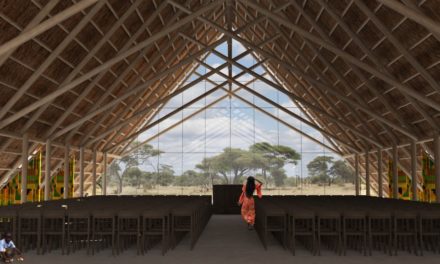DCS Design to rebrand and design new AOTA national headquarters
DCS Design (Davis Carter Scott, LLC), a D.C. metropolitan area architectural and interior architectural design firm, last month announced it was awarded the rebrand and design for The American Occupational Therapy Association’s (AOTA) new national headquarters at 6116 Executive Boulevard in North Bethesda. DCS Design is also the design architect for the recent exterior and interior upgrade and repurposing of 6116 Executive Boulevard.

Existing AOTA location in Bethesda, MD with their current logo on the building exterior. DCS Design will be designing their new office space as well as their new brand identity. Courtesy of DCS Design
“We are so excited to be working with AOTA on both the design of their headquarters space, as well as helping them rebrand the look and feel of their vital organization,” said Lena Scott, Principal, DCS Design. “By rebranding the organization in tandem with their new space design, AOTA is assured a unified design process and brand integration. Our two divisions will work in unison throughout the entire project.”
The new space, which will total approximately 26,000 square feet, will enable more than 65 AOTA staff to be located on one floor, with more spaces for cross-functional collaboration, teaming and connectivity. The rebranding effort will include the redesign of the logo, tagline, and roll-out of the new brand vision, among other services.
“We chose DCS Design because they have designed spaces for hundreds of associations and nonprofits, and they understand the mission-driven goals of organizations like ours,” explained Sherry Keramidas, PhD, FASAE, CAE, Executive Director of AOTA. “DCS Design will collaborate with occupational therapy practitioners to create a new space reflecting our highest standards of accessibility and sensitivity to design considerations for a diversified workforce.”
Occupational therapists and occupational therapy assistants work with people of all ages who need specialized assistance to lead independent, productive, and satisfying lives due to physical, developmental, social, or emotional problems. Occupational therapy practitioners use the “occupations” of self-care, work, and play/leisure activities to increase independence, despite illness, injury, and developmental disabilities.




